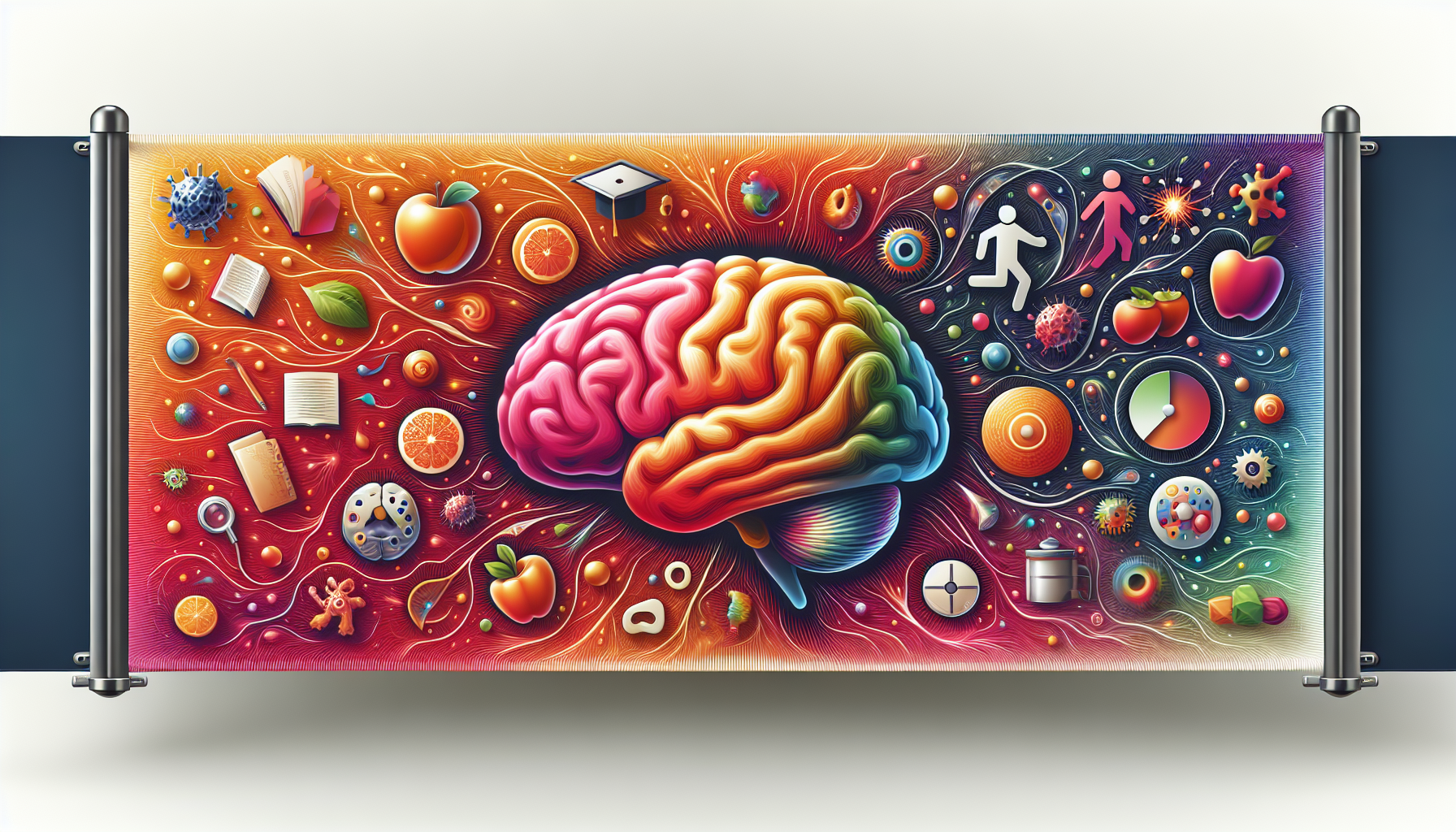On this page
Lera Boroditsky's TED talk discusses language, a unique human ability, that allows the transmission of complex thoughts and knowledge across time and space. With around 7,000 languages globally, there's significant diversity in sounds, vocabulary, and structure, impacting our thought processes and perception. Examples include the influence of language on spatial orientation, time perception, counting systems, color perception, and event descriptions. Grammatical gender in languages can affect the perception and description of nouns. Language also influences our reasoning about events and impacts our cognitive abilities, including mathematical concepts. Even simple perceptual decisions are affected by language, indicating its pervasive effect on our perception and decision-making.
How does it apply to you?
Understanding how language influences our perception and thinking can help us appreciate the diversity of human cognition. It can also help language learners understand the cultural and cognitive nuances of the language they are learning.
Applied Learning to Developer Enablement
Language's influence on perception and reasoning can have a significant impact on software development. Understanding that language can impact cognitive abilities can lead to the development of more intuitive and user-friendly software applications, by taking into account how different users may interact with the software based on their language and associated cognitive abilities.
Developer Checklist
Language and Perception
Language and Programming
Summary
Introduction to Human Language
Language is a unique ability that humans possess, allowing them to transmit complex thoughts to one another. This process involves creating sounds (tones, hisses, puffs) while exhaling, which generate air vibrations. These vibrations travel through the air, hit the listener's eardrums, and are then transformed into thoughts by the brain. This ability allows humans to share ideas across vast distances and time, transmitting knowledge from one mind to another.
Language Diversity and Its Implications
There are approximately 7,000 languages spoken around the world, each differing in sounds, vocabulary, and structure. This diversity raises the question of whether the language we speak shapes the way we think. While this topic has been debated for centuries, recent scientific research has started to provide data to address this question.
The Influence of Language on Spatial Orientation
An example of how language can influence thought processes is evident in the Kuuk Thaayorre language, spoken by an Aboriginal community in Australia. This language doesn't use words like 'left' and 'right', but instead uses cardinal directions (north, south, east, and west) for everything, even in casual conversations. This constant use of cardinal directions helps the speakers of this language to stay oriented, a skill that can be contrasted with the inability of people who don't use such a system to accurately point to cardinal directions.
Language and Perception of Time
Language also influences how people perceive and organize time. For instance, English speakers, due to the left-to-right writing direction, might lay out a timeline from left to right. Conversely, speakers of Hebrew or Arabic, which are written from right to left, might organize time in the opposite direction. For the Kuuk Thaayorre speakers, who do not use 'left' and 'right' terms, the organization of time changes based on the direction they are facing.
Perception of Time
Different societies perceive time differently. The Kuuk Thaayorre people, for instance, perceive time not as relative to the individual, but as locked on the landscape. Their understanding of time is not egocentric (relative to the individual's perspective), but rather, it's tied to their environment. This is a dramatic shift from how many cultures perceive time.
Counting and Number Systems
Different languages have different approaches to counting and numbers. Some languages lack exact number words like 'seven' or 'eight', and their speakers have trouble keeping track of exact quantities. This linguistic difference can affect tasks such as matching quantities of different objects.
Color Perception
Languages also differ in how they divide the color spectrum. Some languages have many words for colors, while others only have a few. For example, English has a single word for blue, while Russian differentiates between light blue ('goluboy') and dark blue ('siniy'). This linguistic distinction can affect people's ability to discriminate colors quickly.
Grammatical Gender
Many languages assign gender to nouns, often masculine or feminine, and these assignments can vary across languages. This can influence how speakers of these languages perceive and describe these nouns. For example, German speakers, where 'bridge' is feminine, are more likely to describe bridges using feminine adjectives, while Spanish speakers, where 'bridge' is masculine, use masculine adjectives.
Event Description
Languages differ in how they describe events, especially accidents. In English, one might say 'He broke the vase', implying the actor caused the event, while in Spanish, one might say 'The vase broke', implying the event was an accident. This distinction can influence what details speakers of different languages pay attention to and remember about the same event.
Language's Influence on Perception
Discussing the influence of language on our perception and reasoning, the speaker provides an example of a vase breaking. If it's described as 'He broke the vase,' versus 'The vase broke,' the blame attributed to the person varies. This illustrates how language guides our reasoning about events.
Language's Impact on Cognitive Abilities
Language has a profound impact on our cognitive abilities. For instance, having number words in one's language opens up the world of mathematics. Without the ability to count, advanced mathematical concepts and practical applications such as algebra and construction become impossible. This highlights how language serves as a stepping stone into various cognitive realms.
Language's Effect on Perception and Decision Making
Language affects even the simplest perceptual decisions, influencing how we perceive colors, for instance. It also impacts broader aspects such as how we perceive anything that can be named by a noun. This shows how pervasive the influence of language is on our cognition and perception.
Language's Role in Shaping Personal Perspectives
Language plays a critical role in shaping perspectives on personal matters such as blame, punishment, and memory. It can influence how we perceive and remember events, further highlighting its influence on our cognition and perception.
Linguistic Diversity and Cognitive Flexibility
The diversity of languages around the world, currently estimated at around 7,000, showcases the ingenuity and flexibility of the human mind. However, the rapid loss of languages and the narrow demographic basis of most cognitive studies underscore the need for a broader, more inclusive understanding of the human mind.
Language's Role in Shaping Individual Thought
The language we speak shapes our thought processes, prompting us to question why we think the way we do and how we could think differently. This understanding provides us with an opportunity to consciously shape our thoughts.
FAQs
What is the unique ability that humans possess? Language is a unique ability that humans possess, allowing them to transmit complex thoughts to one another.
How many languages are spoken around the world? There are approximately 7,000 languages spoken around the world.
Does the language we speak shape the way we think? This topic has been debated for centuries, recent scientific research has started to provide data to address this question.
How does the Kuuk Thaayorre language influence thought processes? The Kuuk Thaayorre language doesn't use words like 'left' and 'right', but instead uses cardinal directions for everything, helping the speakers of this language to stay oriented.
How does language influence perception and organization of time? Language influences how people perceive and organize time. For instance, the direction of writing in a language might determine how its speakers lay out a timeline.
How do different societies perceive time? Different societies perceive time differently. For instance, the Kuuk Thaayorre people perceive time not as relative to the individual, but as locked on the landscape.
How do languages approach counting and numbers? Different languages have different approaches to counting and numbers. Some languages lack exact number words, which can affect tasks such as matching quantities of different objects.
How do languages differ in color perception? Languages differ in how they divide the color spectrum. Some languages have many words for colors, while others only have a few. This can affect people's ability to discriminate colors quickly.
How does grammatical gender influence perception? Many languages assign gender to nouns, which can influence how speakers of these languages perceive and describe these nouns.
How do languages differ in describing events? Languages differ in how they describe events. This can influence what details speakers of different languages pay attention to and remember about the same event.
How does language influence perception? Language influences our perception and reasoning. How an event is described can guide our reasoning about it.
What impact does language have on cognitive abilities? Language has a profound impact on our cognitive abilities. Having number words in one's language can open up the world of mathematics.
How does language affect perception and decision making? Language affects even the simplest perceptual decisions, influencing how we perceive colors, for instance. It also impacts broader aspects such as how we perceive anything that can be named by a noun.
What role does language play in shaping personal perspectives? Language plays a critical role in shaping perspectives on personal matters such as blame, punishment, and memory. It can influence how we perceive and remember events, further highlighting its influence on our cognition and perception.
What does the diversity of languages around the world indicate? The diversity of languages around the world, currently estimated at around 7,000, showcases the ingenuity and flexibility of the human mind.
Why is there a need for a broader understanding of the human mind? The rapid loss of languages and the narrow demographic basis of most cognitive studies underscore the need for a broader, more inclusive understanding of the human mind.
How does the language we speak shape our thought processes? The language we speak shapes our thought processes, prompting us to question why we think the way we do and how we could think differently. This understanding provides us with an opportunity to consciously shape our thoughts.






